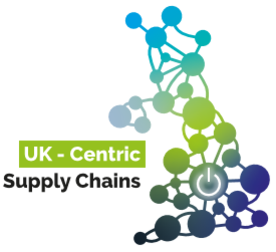Building a sustainable supply chain
Posted on 30th October 2022 at 15:54
During the last decades, sustainability has been on the agenda of academics and companies due to the growing concern about the environment, global warming, and climate change. Sustainability was defined by Brundtland (1987) as "the development that meets the needs of the present without compromising the ability of future generations to meet their own needs".
According to Elkington (1994), sustainability consists of three pillars:
1. Environment (Planet): environmental sustainability refers to the impact and protection of the environment (e.g. pollution, global warming, resource efficiency)
2. Economical: the performance that generates sustainable positive financial results for an extended period (e.g. company's financial results, financial security of people)
3. Society: social implications of the company and protection of human rights (e.g. poverty reduction, employees working conditions, people's living conditions)

The concept of TBL has also translated to the supply chain context. As Chopra (2019) suggests, even though each supply chain represents a small part of the world where it belongs, the subsistence of every supply chain and humans depend on the health of the world where it operates. Consequently, sustainability pressures are also affecting supply chains. Building a sustainable supply chain has become a top priority for businesses. Supply chains from different industries have been experiencing more governmental, environmental and social pressures than ever before.
Some examples of the growing concerns for developing sustainable supply chains may be seen in the following news:
Millions of electric car batteries will retire in the next decade. What happens to them? (The Guardian, 2021)
The aim of a supply chain should go beyond the particular interest of a supply chain actor; instead, supply chain decisions should consider other stakeholders outside the supply chain and how they may be affected (Chopra, 2019). Supply chain strategies that positively impact the environment in most cases will generate savings for the companies in the long term due to more thoughtful use of resources (Christopher, 2016). As supply chain decisions significantly impact the efficiency and efficacy of operations, it is worth analysing the different supply chain processes to look for opportunities to improve sustainability. Moreover, as Christopher (2016) suggests, companies must consider the sustainability impact on the whole product lifecycle, from product design to end-of-life management. As a consequence, the sustainability of your supply partners have an effect on the sustainability of your business.
There are several alternatives to improve the sustainability of your company. For instance, you can extend the life of the material and products that flow through your supply chain by applying circular economy principles such as re-manufacturing, recycling, re-purposing. Applying circular economy principles do not only help to increase the environmental sustainability of business, they also can help companies to get economic benefits. Re-manufacturing, recycling and re-purposing products can increase companies' revenues and reduce disposal costs.
If you are wondering whether your company has a sustainable supply chain or looking to achieve that goal, here at UK-Centric Supply Chains, we can help you with that. The UK-Centric Supply Chains experts can provide you with the necessary support to map and assess the sustainability of your supply chain and guide you to build a sustainable future for your business with economic, environmental and social success.
References:
Brundtland, G. H. (1987) Report of the World Commission on environment and development:" our common future".
Chopra, S. (2019) Supply chain management: strategy, planning and operation. Seventh, g. Pearson.
Christopher, M. (2016) Logistics & supply chain management. Fifth edit. Pearson (Always Learning).
Elkington, J. (1994) 'Towards the Sustainable Corporation: Win-Win-Win Business Strategies for Sustainable Development', California Management Review, 36(2), pp. 90–100. doi: 10.2307/41165746.
HBR (2022) The Myth of Sustainable Fashion. Available at: https://hbr.org/2022/01/the-myth-of-sustainable-fashion.
Reuters (2021) Tesco extends net-zero pledge. Available at: https://www.reuters.com/business/sustainable-business/britains-tesco-extends-net-zero-pledge-2021-09-23/.
The Guardian (2021) Millions of electric car batteries will retire in the next decade. What happens to them? Available at: https://www.theguardian.com/environment/2021/aug/20/electric-car-batteries-what-happens-to-them.
Melissa Venegas Vallejos is a PhD student in Operation Management at Aston University. Her research area is on Reverse Supply Chain Design and Supply Chain Collaboration. Her aim is to support companies to build sustainable businesses through process improvement and developing capabilities through collaboration with supply chain partners.
To find out more about how UK-Centric Supply Chains can help your business, why not get in contact with us today?
Share this post:



